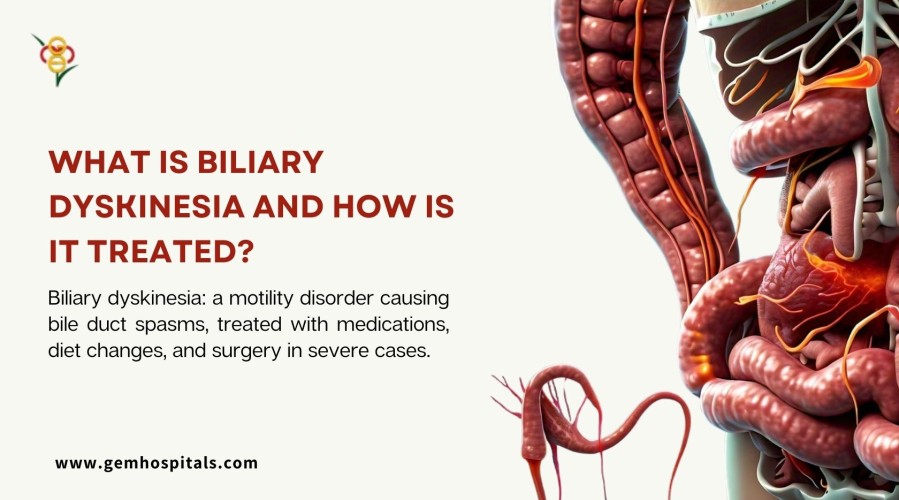Learn effective solutions for digestive problems with expert tips to improve gut health, reduce discomfort, and maintain a healthy digestive system.
What Is Biliary Dyskinesia and How Is It Treated?

Biliary dyskinesia is a condition affecting the bile ducts and gallbladder, causing severe abdominal pain and digestive issues. If you or a loved one is experiencing unexplained stomach problems, understanding this condition is crucial. Here’s an in-depth look at biliary dyskinesia, its symptoms, causes, and treatment options.
What is Biliary Dyskinesia?
Biliary dyskinesia is a disorder where the bile ducts and gallbladder fail to function properly. This dysfunction can lead to bile flow issues, resulting in digestive problems. The condition is often diagnosed when there are no gallstones, but the gallbladder or bile ducts are not working as they should.
Causes of Biliary Dyskinesia
Several factors may contribute to biliary dyskinesia, including:
- Gallbladder Dysfunction: Poor functioning of the gallbladder can lead to improper bile flow.
- Hormonal Imbalance: Hormones, especially in women, can affect bile duct function.
- Digestive Disorders: Conditions like irritable bowel syndrome (IBS) might increase the risk.
- Post-Surgical Complications: Surgeries involving the gallbladder or bile ducts can lead to dyskinesia.
Common Symptoms of Biliary Dyskinesia
The symptoms can vary but often include:
- Abdominal Pain: Severe pain, usually in the upper right abdomen.
- Nausea and Vomiting: Frequent feelings of sickness and actual vomiting.
- Bloating: A feeling of fullness or bloating after meals.
- Indigestion: Difficulty digesting food, leading to discomfort.
How is Biliary Dyskinesia Diagnosed?
Diagnosing biliary dyskinesia involves several steps:
- Medical History: A thorough review of your medical history and symptoms.
- Physical Examination: Checking for tenderness in the abdominal area.
- HIDA Scan: A special imaging test that tracks the production and flow of bile.
- Blood Tests: To rule out other potential causes of symptoms.
Treatment Options for Biliary Dyskinesia
Treating biliary dyskinesia usually involves the following approaches:
- Medication: Certain medications can help manage symptoms and improve bile flow.
- Diet Changes: A low-fat diet can reduce the workload on the gallbladder.
- Surgical Procedures: In severe cases, surgery to remove the gallbladder (cholecystectomy) may be necessary.
Managing Biliary Dyskinesia with Lifestyle Changes
In addition to medical treatments, lifestyle changes can significantly impact your well-being:
- Healthy Diet: Focus on a balanced diet rich in fruits, vegetables, and lean proteins.
- Regular Exercise: Helps maintain a healthy weight and improves digestive health.
- Stress Management: Techniques like yoga, meditation, or therapy can help manage stress, which can exacerbate symptoms.
When to Seek Medical Help
It's essential to consult a healthcare professional if you experience persistent symptoms such as:
- Unexplained abdominal pain.
- Recurrent nausea and vomiting.
- Significant weight loss.
- Persistent bloating or indigestion.
Schedule an Appointment with GEM Hospital
If you or a loved one are experiencing symptoms of biliary dyskinesia, it’s crucial to seek professional medical advice. At GEM Hospital, our experienced team of specialists is dedicated to providing comprehensive care and effective treatment options. Don’t let biliary dyskinesia affect your quality of life. Schedule an appointment today to get the help you need.
Blogs & Article
Explore current research trends in digestive health, including new treatments, advanced diagnostics, and innovations improving gut health and patient care.
Discover common digestive health myths and the real facts. Learn simple tips to improve gut health and maintain better digestion for a healthier life.


